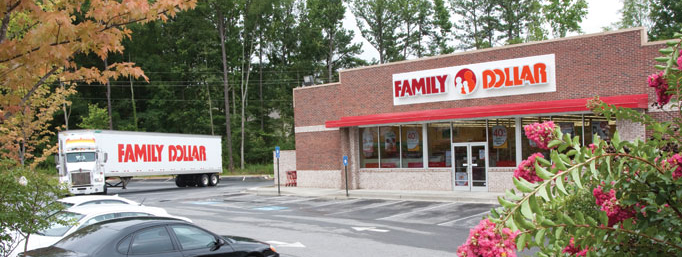
The Dollar Tree and Dollar General brawl over who will get to buy Family Dollar has not yet dampened investor interest in the net-leased drugstore sector. But it could, if the battle drags out much longer, according to the Northbrook, Ill.–based Boulder Group, which examined freestanding stores leased to the three retailers.
“The immediate effect of the potential acquisition is unknown in the marketplace,” said John Feeney, a Boulder vice president. “In the meantime, some investors will stay on the sidelines waiting for the effect of the potential transaction, including possible store-closure announcements, credit rating changes, et cetera, to play out.”
Cap rates within the segment compressed from the third quarter of 2013 to the second quarter of 2014 by 75 basis points, to 7 percent, Boulder says. Dollar General stores represented the lowest median cap rates in the sector — 6.75 percent — owing to the abundance of newly constructed stores. Additionally, typical Dollar General leases are 15-year and triple-net, as opposed to the ten-year, double-net leases customary for Family Dollar or the seven- or ten-year double-net leases of
Dollar Tree, says Feeney.
